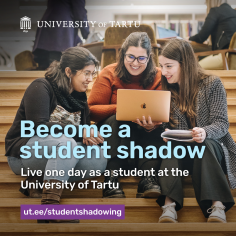Quantitative Economics
Master's
2 January
15 March
30 April
1 September
- The University of Tartu is ranked in the top 350 universities in the world (see Rankings and Surveys).
- You have an opportunity to receive two diplomas by spending your second study year at Ghent University.
- Cooperation with the Bank of Estonia offers access to expert lecturers from the bank, as well as internship and post-graduation employment opportunities.
- Graduates can pursue careers as analysts in banks, public sector organisations, consulting firms, and international companies. About 80% of our alumni work in Estonia.
- Study at the University of Tartu Delta Centre, which brings together a vibrant community of students, researchers and innovators in the fields of computer science, business and economics, mathematics and statistics.
The English-taught master's programme in Quantitative Economics gives students strong preparation in contemporary economic theory and econometric analysis methods, enabling them to analyse and forecast economic processes. The master's programme is taught by top specialists in their field in an international environment. It is an excellent springboard for doctoral studies in economics or following a career as an analyst in banks, public sector organisations, consulting firms and international companies.
From the academic year 2024/25, you can choose to study for two years in Tartu at one of the most modern study and innovation centres, the University of Tartu Delta Centre, or spend your second year at Ghent University in Belgium (read more about the university) and receive two diplomas.
Double degree programme with Ghent University
Ghent University (Belgium) and the University of Tartu have established a double degree master's programme. The programme started in the academic year 2024/2025.
Since the establishment of the double degree programme, you can choose between two specialisations and two study tracks:
I Economics and Data Analysis – you will study at the University of Tartu for two years. However, you still have the option (but no obligation) to study abroad with any exchange programme. This specialisation has a strong focus on various data analysis methods. You will receive a diploma from the University of Tartu.
II Economic Theory and Data Analysis – you will study your first year at the University of Tartu and your second year at Ghent University. Thus, mobility is an integrated part of the two-year master's programme. In addition to data analyses, this specialisation also focuses on financial markets and economic policy topics. The students choosing this study track do not need to pay extra for their studies at Ghent University. You will receive two diplomas with the following degrees:
- Master of Arts in Quantitative Economics (University of Tartu)
- Master of Science in Economics (Ghent University)
The students will be selected for their study track at the time of admission to the master's programme. Upon submitting your application in DreamApply, please indicate your preferred study track: Tartu (I) or Tartu and Ghent (II). Even if you are not admitted to your chosen study track, you will still be considered for the other alternative study track.

Ghent University is one of the major universities in Belgium and belongs to the top 100 in the ranking of world universities. Ghent University partners with the University of Tartu within the ENLIGHT network, and the two universities have cooperated in economics studies since 2021 in the Erasmus Mundus Joint Master in Economics of Globalization and European Integration (EGEI, read more here). Read more about Ghent University here and the economics double degree programme here.
Learning outcomes
As a future master's student in the Quantitative Economics programme at the University of Tartu, you will embark on a journey that will significantly enhance your understanding and application of economics. You will learn the main concepts in economics, gaining the ability to assess their applicability in various scenarios critically. Your skill set will expand to include the application of both microeconomic and macroeconomic models to analyse real-world economic problems effectively.
Furthermore, you will develop a comprehensive approach to understanding economic phenomena, mastering the art of analysing and forecasting the behaviour of economic agents and the impact of governmental policies. This will be achieved not only verbally and graphically but also through advanced mathematical and empirical methods.
Moreover, the programme will provide valuable experience in conducting scientific research, equipping you with the tools to solve real-life economics-related problems. By the end of your studies, you will have a well-rounded, practical understanding of economic theory and its applications, setting a solid foundation for your future career in economics.
The programme offers internationally competitive master's-level economic education. The teaching staff will involve graduates of the high-standing international economics doctoral programmes and leading economists of Estonia. Due to close international contacts and active research activities at the national and international levels at the faculty, students can get actual research experience or apprenticeship training in Estonian financial and public sector institutions.


Partnership with the Bank of Estonia
The programme is delivered in cooperation with the Bank of Estonia, the central bank of Estonia. These are the benefits to students:
- High-quality study programme
- Lecturers from the Bank of Estonia
- Internship opportunities
- Job opportunities after graduation
The programme aims to bring the international dimension into academic studies and develop students’ skills in quantitative economic analysis. Thus, the curriculum benefits the Bank of Estonia and other institutions (primarily ministries) involved in economic analysis and surveys.


Scholarships
Three monthly scholarships will be awarded to the highest-ranked applicants of €600 during the first year of the master’s studies for ten months (September-June). Applicants are considered for it automatically at the time of admission.
Programme highlights in media
- Watch the programme director talk about the master's programme in Quantitative Economics during Virtual Open Day 2024.
- Watch the programme director talk about the master's programme in Quantitative Economics and the discussion round of master's students in economics and mathematics during the Online Open Doors Week 2022.
- Watch ten questions with a Quantitative Economics student.
- Watch Alumni Talks: Firms' corporate political activities by Irakli Barbakadze (MA in Quantitative Economics)
You can choose between two specialisations and study tracks: Economics and Data Analysis or Economic Theory and Data Analysis. See the modules in the curriculum below.
Is an internship mandatory? What kind of internships is it possible to get?
The internship is an integral part of the MA Quantitative Economics programme studies. An internship course of 3 ECTS is part of the elective modules. During the practical training, the student is expected to gain economic research experience by applying the theoretical knowledge obtained during the coursework to the empirical or theoretical study of a specific economic problem. The internship may comprise very different kinds of activities: economic analysis in the central bank research department, work in a data analytics company, work in a ministry or other public sector organisation, and helping to establish a start-up company. In the practical training, some linkage with quantitative analysis and/or economics is expected, i.e. we do not expect academic economic research in a narrow sense, but internship may include, e.g. 1) writing applied reports; 2) collecting information; 3) making data accessible for research and analysis; 4) statistical data analysis; 5) collecting literature and writing literature reviews.
When do students generally do their internship?
Most master's students have an internship in the summer months after the first year of their studies. It is logical to apply for an internship after the basic skills in economic theory and econometric analysis have been acquired in the first year of the master's studies. Yet, we encourage the students to take internships outside of the summer months, e.g. in the autumn or winter of the second year of the master's studies. Some students have been offered a permanent position at the end of the internship.
How do students find internships? Does the university help with that?
The University of Tartu helps the students to find an internship. In particular, we have provided the students with a list of possible places (companies and other organisations) for practical training in Estonia and the other Baltic States. The internship mediation page FUTULAB has also been created (see more here). However, students have to apply for the internship themselves. The internship can be taken in any country, given that it matches the profile of the study curriculum. One can apply for funding from the Erasmus+ programme when taking an internship abroad. The University of Tartu has also offered some internship opportunities, either as part of the work for some research projects of the School of Economics and Business Administration or at the University of Tartu Centre for Applied Social Sciences (see more here).
Examples of companies where students have done their internships during the last few years:
- Central banks: Eesti Pank (central bank of Estonia), Centre for Excellence in Finance and Economic Research (CEFER), established by the Bank of Lithuania and Vilnius University
- Think tanks: CENTAR (Estonia), PRAXIS (Estonia), BICEPS (Latvia), PMCG (Georgia), CASS (Estonia)
- Financial institutions: both commercial banks and Fintech companies, for example, Swedbank (Estonia), Bigbank (Estonia), Redgate Capital (Estonia), Friendly Finance Group (Estonia), Scorewise (Estonia), Dataminer (Estonia), LHV Bank (Estonia), WISE (Estonia)
- Manufacturing companies: Ericsson Eesti AS, Stora Enso Eesti AS
- Public sector institutions: Estonian Unemployment Insurance Foundation, Ministry of Economic Affairs and Communications, Foresight Centre of the Riigikogu (Parliament of Estonia), Estonian Development Fund, Enterprise Estonia (Estonia)
- Universities: University of Tartu (Estonia), CERGE-EI (Czech Republic)
Internship insights

"I took on a three-month internship role at the Center for Excellence in Finance and Economic Research (CEFER), Bank of Lithuania. Besides providing an opportunity to hone my data analysis and research skills under the supervision of Swapnil Singh, a principal Economist at the prestigious bank, it also created a platform through which I integrated myself with people from diverse cultures. At the end of the internship, my ability to independently take on projects and deliver desired results was greatly enhanced, equipping me for future work in my field of study."
Pearl Etie, MA Quantitative Economics graduate

"Being a student of the Quantitative Economics programme provided many internship opportunities. I chose the internship I wanted to explore my career path, which helped me gain crucial work experience. Also, the internship enabled me to apply what I learned from classes."
Berk Erkan, MA Quantitative Economics graduate
There are plenty of exchange opportunities to study abroad for a semester or full year using the Erasmus+ programme. To enable the studies abroad to contribute to the fulfilment of the curriculum, in the curriculum, one of the three elective modules is the Mobility Module. The students must take master-level economics courses for at least 15 ECTS during the semester abroad, as previously agreed with the programme manager. Below are listed a few excellent institutions the MA Quantitative Economics students have previously studied at. The complete list of possible institutions for studies abroad can be found here.
Ghent University (Belgium) is one of the major universities in Belgium and belongs to the top 100 in the world universities rankings. Ghent University partners with the University of Tartu within the ENLIGHT network. In economics studies, both Ghent University and the University of Tartu participate in the Erasmus Mundus Joint Master in Economics of Globalization and European Integration (EGEI). Read more about the university here.
Kiel University (CAU, Germany) was founded in 1665 and is the oldest, largest and best-known university in the German state of Schleswig-Holstein. Kiel Institute for the World Economy hosts the Kiel Advanced Studies programme(ASP), where many alumni and instructors of the MA Quantitative Economics programme have studied. ASP is a 1-year programme taught by world-renowned professors from leading universities from across the globe who go to Kiel to teach their areas of expertise in intensive one or two-week courses. Read more about the university here.
University of Konstanz (Germany) has, since its foundation in 1966, distinguished itself through its top-level research, excellence in teaching and studies, internationality and interdisciplinary collaboration. This vision can be seen in its architecture, where the university campus’s short distances and interlinked buildings sustain an environment that facilitates communication, interlinks scientific disciplines and advances a culture of creative collaboration. The university is located in the southernmost part of Germany, next to the border with Austria and Switzerland, in a very picturesque landscape. Read more about the university here.
University of Bologna (Italy), one of the oldest universities in Europe, considers its history to be as far back as 1088. In addition to its history, the University of Bologna ranks in the top 15 of the first 200 universities worldwide. Read more about the university here.
Curriculum version:
More info: Study Information System
School of Economics and Business Administration
The School of Economics and Business Administration is part of the Faculty of Social Sciences, with a history of more than 75 years of teaching business and economics. It has a leading role in Estonian economic and business education with internationally qualified and experienced staff.
The School of Economics and Business Administration is Estonia's top research centre in economics, international business and management. The school aims to provide a vibrant research environment linked to international centres of excellence and produces high-level academic and policy-relevant economic analysis.
People
|
Image
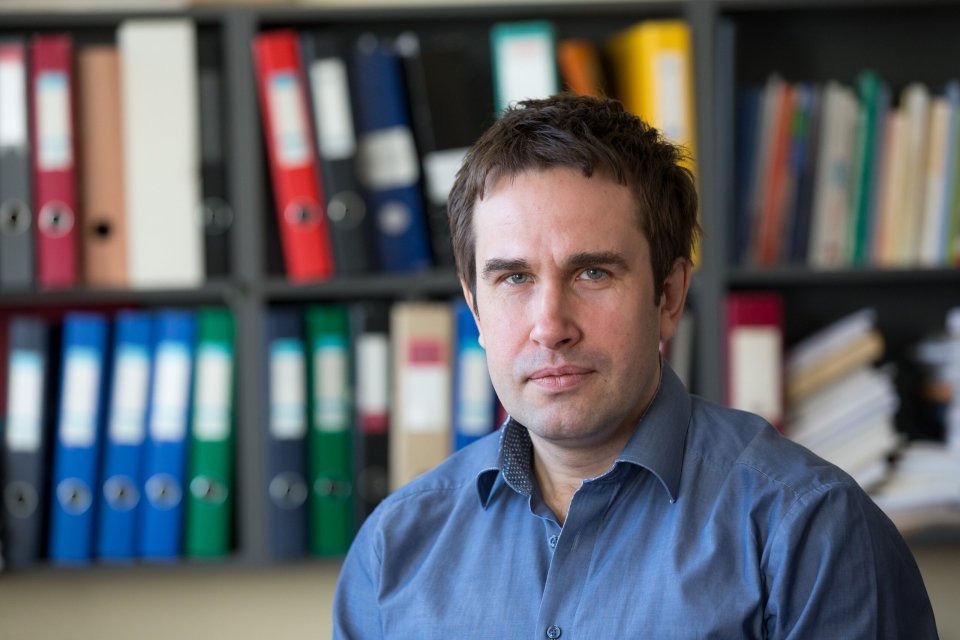
|
Jaan Masso
|
|
Image
|
Andres Võrk
|
|
Image
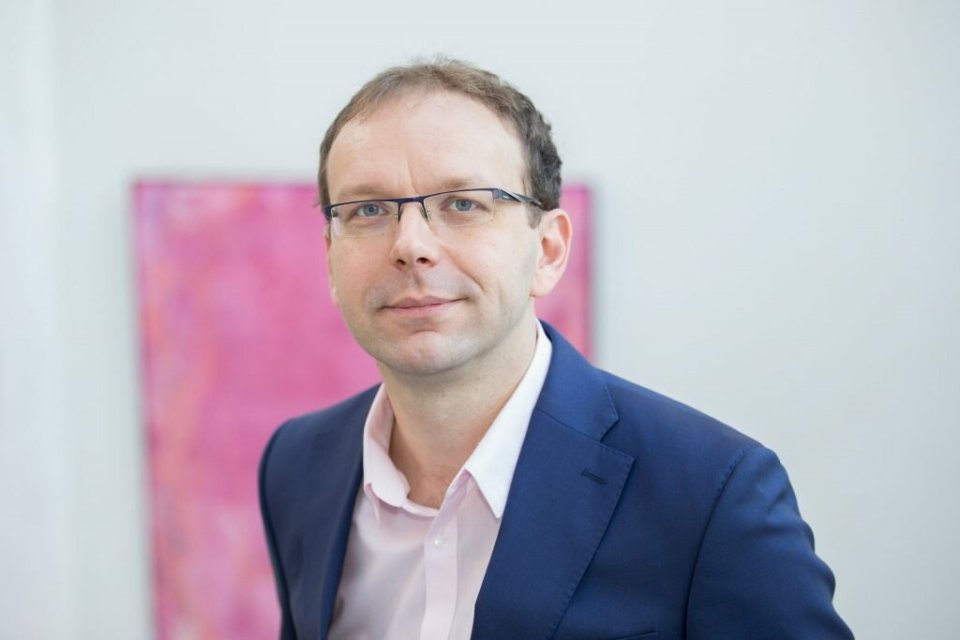
|
Lenno Uusküla
|
The full list of teaching staff is available here.
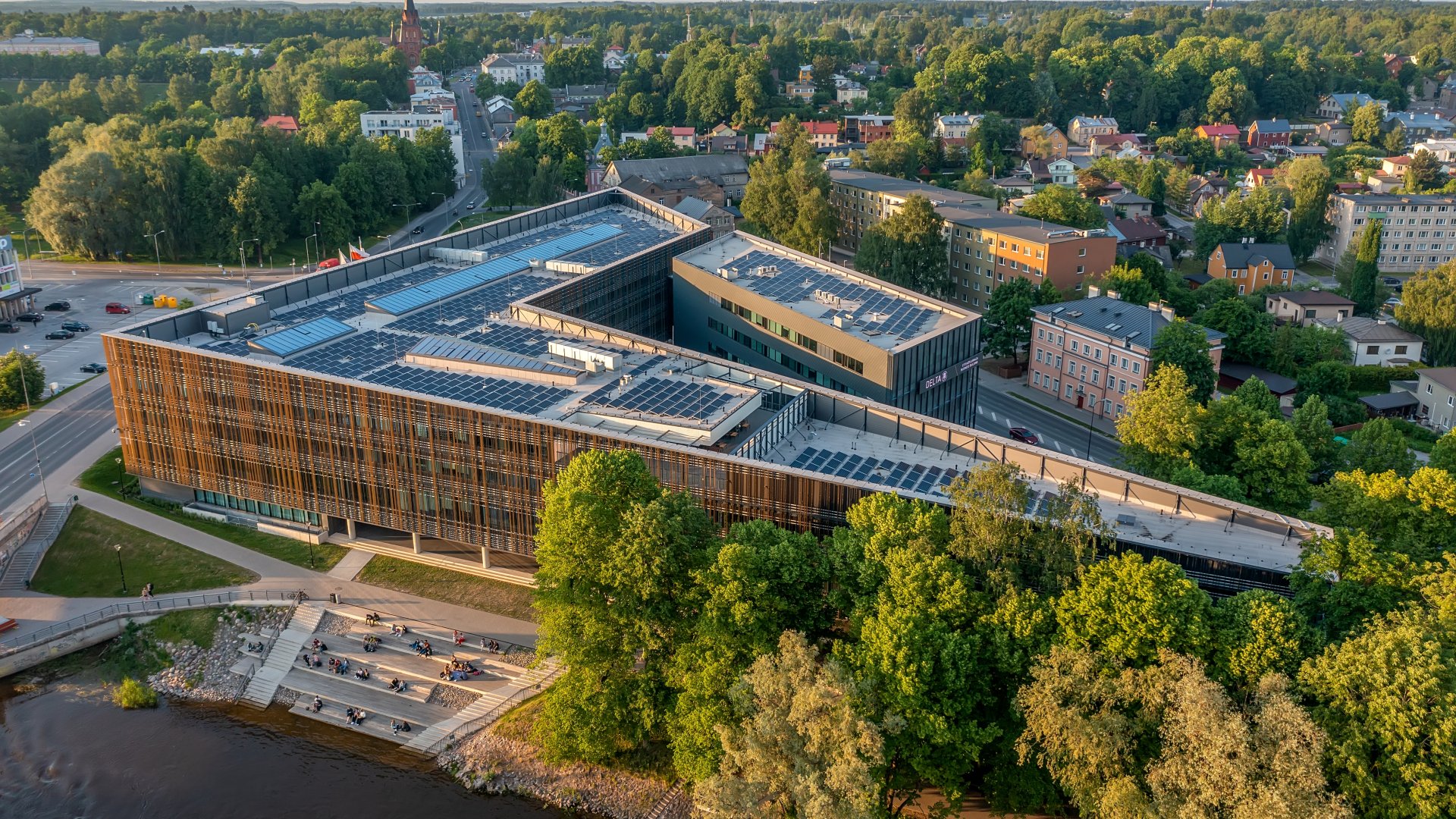
The studies take place at the University of Tartu Delta Centre. The centre brings together a vibrant community of students, researchers and innovators in computer science, robotics, technology, mathematics, statistics, economics, management and business. The centre combines learning, excellence in research and the challenges of business and society, creating innovative solutions for economic and social progress.
Read more about the University of Tartu Delta Centre here.
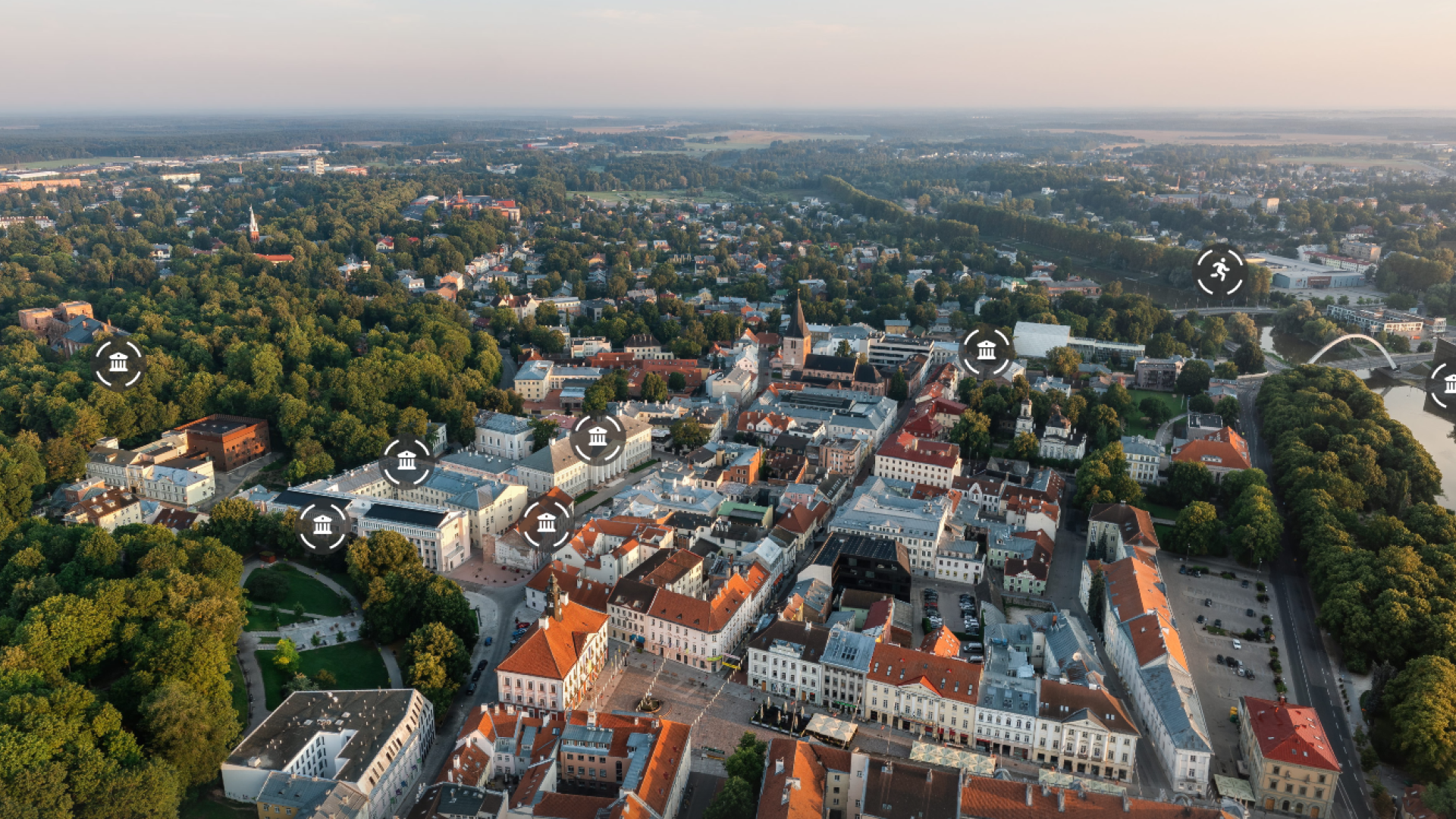
Visit us virtually
Explore Tartu, the School of Business Administration and Economics, and the student dormitories through the university's virtual tour.
The objective of the master's programme in Quantitative Economics is to prepare highly qualified analysts for government agencies, banks, international organisations and consultancy firms, filling top positions that require a detailed understanding and application of economic models and econometric methods.
Our graduates work in diverse sectors, including various financial companies, consultancy firms, think tanks, multinational companies, and universities. Examples of employers include Google (Ireland), Bolt (Estonia), Finnair (Finland, Estonia), think-tanks (PMCG in Georgia, Centar and Praxis in Estonia), universities (Tbilisi State University in Georgia, University of Tartu, University of Cambridge in the UK), banks (Swedbank, Bigbank, Luminor in Estonia), Fintechs (Wise, Fortumo).
As to the occupations and job tasks, many graduates are working as different kinds of data analysts. This is supported on the one hand by a strong emphasis on statistics, econometrics and data science courses during the master's studies, and on the other hand by the high demand for data scientists in the labour market.
Alumni insights
Kateryna Adermann

Nationality: Ukrainian
Previous education: Mathematics, Taras Shevchenko National University of Kyiv, Ukraine
What did you get from the MA in Quantitative Economics?
It gave me valuable international experience, abilities and competencies to solve applied economic problems, and teamwork skills. I am proud to be a graduate of the best Estonian university and have a very valuable speciality on the market. I am grateful to university teachers for supporting me during my studies, always answering questions and eagerly sharing knowledge.
Exchange, Research and Internship Experience
Erasmus exchange in Kiel University, Germany (1 year) and internship at Central Bank of Estonia, Economics and Research department.
Current position: Senior Risk Analyst, Scorewise, Estonia
Mykola Herasymovych
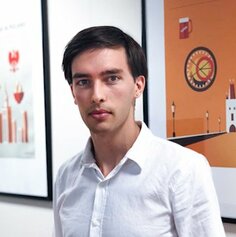
Nationality: Ukrainian
Previous education: Economics, National University of Kyiv-Mohyla Academy, Ukraine
What did you get from the MA in Quantitative Economics?
It gave me a good technical background and opportunities to get professional and practical experience by going to seminars and conferences, doing internships and exchange studies. All the knowledge and skills received there made it possible for me to publish my first academic paper, enter the Estonian job market and excel in my career.
Exchange, Research and Internship Experience
Internship in the Central Bank of Estonia; exchange semester at the College of Charleston, the US; seminars, such as "Introduction to Bayesian Econometrics", held at the Central Bank of Estonia.
Current position: Head of Data Science, Creditstar Group Ltd, Tallinn, Estonia
Daria Tykhonova
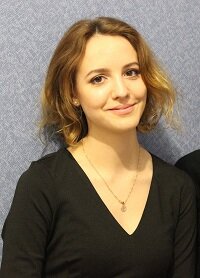
Nationality: Ukrainian
Previous education: Economic Theory, National University of Kyiv Mohyla Academy, Ukraine
What did you get from the MA in Quantitative Economics?
It has developed my analytical skills, understanding of quantitative methods and how to work with data. It gave me a good background for my current position as a business analyst.
Exchange, Research and Internship Experience
Erasmus exchange in Bologna University (Rimini campus) and Internship at Praxis. I was working on research focusing on absenteeism and presenteeism, which involved building multilevel models.
Current position: Business Analyst, Finnair Business Services, in Tartu, Estonia
Diana Gabrielyan
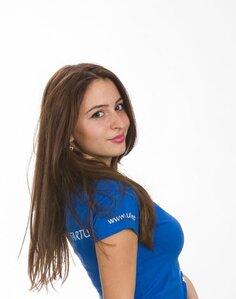
Nationality: Armenian
Previous education: Informatics and Applied Mathematics, Yerevan State University, Armenia
What did you get from the MA in Quantitative Economics?
This programme opened many opportunities for me. Not only I learned a lot about economics, but I also had the chance to do an internship at the Bank of Estonia, where I gained invaluable practical experience. In addition, I took part in many extra-curricular activities, which expanded my horizons and contributed to my success. I also had the opportunity to do the Erasmus exchange semester in Italy.
Current position: I am a PhD student at the University of Tartu, and at the same time, I am working as an Insights Analyst at Finnair in Helsinki, Finland
Youjun Shin

Nationality: South Korea
Previous education: BSc Economics and Trade, Kyungpook National University, South Korea
What did you get from the MA in Quantitative Economics?
I got all the good things from the MA in Quantitative Economics programme;
Upgrade myself through high-quality lectures;
Higher knowledge for higher education;
Good opportunity for work experience;
A different perspective from the international environment;
The best ever classmates.
These 2 years are the best school experience in all my education periods.
Current position: I am a PhD student at the University of Tartu and Working as a Data analyst at Nordea Bank in Tallinn, Estonia.
Ketevani Kapanadze
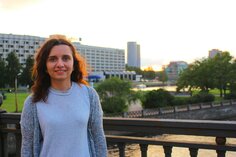
Nationality: Georgia
Previous education: BSc Economics, Marmara University, Turkey
What did you get from the MA in Quantitative Economics?
During my bachelor's studies, I gained theoretical knowledge about Economics, but the MA in Quantitative Economics gave me the opportunity to put my theoretical studies into practice.
Current position: PhD student in Economics, CERGE-EI
Contact: ketevani.kapanadze@cerge-ei.cz
Ana Burduli
Nationality: Georgian
Previous education: Business Administration and Economics, Ivane Javakhishvili Tbilisi State University, Georgia
What did you get from the MA in Quantitative Economics?
QE programme gave me a good knowledge of economics and useful practical skills. That made me confident in every aspect of my academic and professional life.
Exchange and Research Experience
Under the Erasmus traineeship programme, I served as a Research Assistant at the Bank of Lithuania in its Center for Excellence in Finance and Economic Research (CEFER), working on DSGE models. Through the same traineeship programme, I also worked as a Mentor for the Masters of Applied Economics Programme at CERGE-EI in Prague.
Current position: Senior Researcher, ISET Policy Institute, Tbilisi, Georgia
Contact: ana.burduli@iset.ge; anaburduli92@gmail.com
Admission requirements for Quantitative Economics
- bachelor’s degree or equivalent qualification (must be obtained by the end of July) – please see our country-specific document requirements
- prerequisite courses that the applicant has to have passed during earlier studies on higher education level: mathematics in the value of 9 ECTS and probability and mathematical statistics in the value of 6 ECTS completed in the previous study level. The bachelor's programmes offered at the School of Economics and Business Administration of the University of Tartu (both in Estonian and English) provide the required number of credit points in mathematics and statistics
- English language proficiency – please see our acceptable tests and exempt categories
NB! The restrictions for the citizens of the Russian Federation are specified here.
Applications are evaluated based on
- the score of the motivation letter (yields 60% of the final score)
- the average grade of the previous study level (yields 40% of the final score)
The motivation letter must be submitted with your application in DreamApply by March 15 at the latest.
The motivation letter consists of two parts: a written part (essay) and a video recording.
Written part (essay)
The essay should be written in English, and contain approximately 3000-3500 characters with spaces based on the following points:
- Explanation on which economics research topics are attractive for the student to write the master's thesis. The applicant should propose a potential master's thesis topic and
a) explain the research topic;
b) motivate why it is interesting and essential to study this topic;
c) discuss how to explore this topic and what would be the methodology. - The description of the career that the applicant would like to follow, which
a) explains what attracts the applicant to this career path;
b) discusses how the Quantitative Economics programme (courses and topics in the programme) would help to achieve this career goal;
c) argues what would be the biggest challenges in achieving this career goal.
Short video CV
The applicant should record a video of up to 5 minutes in length, where the applicant's face is clearly visible, and voice clearly audible. The video should be in the "pitch" format: thoroughly thought out, covering the catchiest attributes of the applicant. The video does not have to be done professionally – for example, it can be produced with a smartphone camera or webcam of the computer.
NB! The applicant must include a link to the video file in the motivation letter. When submitting the video link, make sure the video can be accessed by anyone reading the motivation letter.
The video should address the following aspects:
- highlights from the applicant's CV, including how the applicant's background (previous studies and work experience) is related to the Quantitative Economics programme; describe especially your experience in economic research (if any);
- previous studies in quantitative analysis subjects (statistics, econometrics, mathematics, programming, data analysis), knowledge and experience in using various software packages (e.g., R, Python, SPSS, Stata);
- describe any of your studies abroad or extracurricular studies on top of the formal programs, e.g., participation in student conferences, workshops, student competitions, online courses taken, etc.;
- describe how your various other capabilities and qualifications enable you to complete the studies in Quantitative Economics successfully and to achieve the career goals stated in the motivation letter;
- explain why you have chosen to apply to the University of Tartu.
Evaluation criteria:
- In the essay:
a) the ideas for a potential master thesis (defined a research problem, discussion on how to solve and explore the research problem) (max 20 points);
b) clearly defined career goals and aspirations and how the Quantitative Economics program is expected to contribute in achieving these (maximum 15 points);
c) the skills of argumentation and discussion as presented in the written text, including logicality of the structure of the letter, the relevance of the information and arguments presented, and abilities of self-expression in the written form, grammatically fluent and correct English (max 15 points).
- In the short video CV:
a) comprehensive description of the capabilities enabling the study of Quantitative Economics, especially the skills obtained in mathematics, statistics, econometrics, and quantitative analysis skills (maximum 20 points);
b) previous experiences in the field, like practical work experience, voluntary work, internships undertaken or any other experience with economic research or quantitative analysis, e.g., in the bachelor thesis (maximum 15 points);
c) the content, presentation skills (fluency, naturality, and organization of the presentation), and understanding of the Quantitative Economics programme will be assessed (max 15 points).
The maximum score for the motivation letter is 100 points and the result is positive only if the applicant gains 51 points or more.
In case of need, the Admissions Committee may ask some applicants to be available for a follow-up interview during April 2025.
Only those applicants who score 66 points or higher (out of 100) as a combined score from both the motivation letter and average grade of the previous study level, will be considered for admission.
For further information on assessing candidates´ academic performance and calculating admissions´ score see here.
How to apply
The following information applies to international students and Estonian students who graduated abroad:
The application system opens on 2 January and closes on 15 March. The following documents must be submitted electronically via DreamApply by 15 March:
- online application
- motivation letter
- official certified copy of the bachelor's diploma or its equivalent and Diploma Supplement (transcript) in the original language (must include a description of the grading scale).
NB! Applicants graduating in the upcoming spring/summer and having their diploma and final transcript issued later than the application deadline should electronically submit their most recent official transcript (including also the grades/results for the last autumn semester) by the application deadline. The transcript should be supplemented by an official statement from the issuing institution indicating current enrollment and expected graduation date. Admitted candidates are required to post certified copies of their graduation documents as soon as these have been issued (must reach us no later than by the end of July). - official certified translation of the bachelor’s diploma and Diploma Supplement (transcript) into English. As certified translations we consider 1) official translations made by the issuing institution (university) bearing their original signature, stamp etc, or 2) translations certified by a sworn translator or notary.
- proof of English language proficiency
- copy of the passport page stating the applicant’s personal particulars
- confirmation/receipt of application fee payment (if applicable). All international applicants are required to pay the application fee EUR 100, unless they have completed the previous study level in Estonia. An application will only be processed after the fee has been received by the UT.
Submitted applications can not be edited. It is only possible to upload new documents (e.g. graduation certificates). Applicants will receive feedback and notifications through the DreamApply system to their e-mail. Incomplete applications or those submitted by e-mail will not be considered for admission.
Guide to submitting an electronic application on DreamApply.
NB: The University of Tartu has no official partnerships with agents or educational representatives. We strongly recommend applying directly to the university without the help of unauthorised third-party entities. Should you use such a service, please ensure that your application's contact information is your personal details (your e-mail, phone number, etc.).
The evaluation of applications will be made based on the electronic copies added to DreamApply. A general ranking list will be formed based on the electronically submitted applications and admission results (including offers) will be announced to all applicants personally via DreamApply by April 30 at the latest. Admitted candidates are expected to accept or decline the offer in DreamApply in 7 days. If the decision is not communicated to UT via DreamApply by the stipulated deadline, UT reserves the right to withdraw the admission offer.
NB! It is not possible to postpone the beginning of studies to the next academic year.
Terms and conditions of the admission offer
Admission offers are conditional. This means that there are conditions in the offer which the applicant needs to fulfil in order to be admitted (e.g. sending application documents by post; obtaining the required level of education). If the conditions are not met, UT has the right to withdraw the offer. Also, UT reserves the right to withdraw or amend any offer or revoke the matriculation of a student, if it becomes evident that the application contains fraudulent information, the qualification does not provide access to the chosen study programme or the student is found to have omitted key information from the application. Should such circumstances occur, UT will not be liable for any material or immaterial loss which the student may suffer as a result.
Once the admission results have been announced, all admitted students are required to send the application documents by post to: Student Admissions, University of Tartu, Ülikooli 18-133, Tartu 50090, ESTONIA.
The documents are expected to be mailed only by those receiving the admission offer (unless instructed otherwise by the admissions staff). The documents must reach the university within 3 weeks from the announcement of the offer. If the application documents do not reach us by the deadline, the university has the right to withdraw the admission offer. Applicants will be informed when their documents have arrived.
Requirements for educational documents
All copies of educational documents (diplomas and Diploma Supplements/transcripts) must be officially certified. By certified we mean that the copies should bear an original signature and seal of the authority certifying that these are true copies of the original document(s). The copies can be certified either 1) by an authorised official of the issuing institution, or 2) by a notary, or 3) with an Apostille attached. NB! Country-specific requirements may also specify the way documents from certain countries must be certified.
Please note that UT does not accept simple copies made on the basis of already certified copies (primary copies are needed).
All admitted students are required to present their original qualification certificates upon arrival (unless these were sent directly from the issuing institution).
Paying the tuition fee (applicable to those receiving a fee-based study place offer)
- EU/EEA/Swiss citizens are required to pay the fee for the first semester once they arrive in Tartu (by 20 September at the latest after signing the fee contract, please read more here).
- Admitted students from other countries are required to pre-pay half of the first semester's tuition fee. The invoice along with the pre-payment deadline and payment details will be sent to applicants via DreamApply after they have accepted the admissions offer and the University has received the hard copies of the application documents. Second part of the fee is due on 20 September. NB! The official admission letter (necessary for visa application) will only be issued once the University of Tartu has received the pre-payment.
- NB! Once you have been offered a fee-based study place, be aware that it will not be changed into a fee waiver study place. By transferring the pre-payment to the university, you confirm that you have informed yourself about the process of the visa and temporary residence permit application and you are able to arrive in Estonia by the start of the academic year. If you have any questions please contact studentvisasupport@ut.ee.
The official admission letter will be sent to admitted students electronically via DreamApply only after the admissions office has received and reviewed hard copies of the application documents, and received the tuition fee pre-payment (if a pre-payment was required, please see Step 3 for more details).
NB! The electronic admission letter is also sufficient for non-EU students for applying for visa/residence permit at an Estonian embassy.
Once the admission letter is issued, accepted students may proceed further with arranging their arrival. All non-EU students should first consult information on the process of visa and temporary residence permit application to be sure, as where and when the relevant documents need to be applied. Note that housing at the UT dormitories can be applied during a limited period of time, unless specified otherwise on the website.
NB! Admitted students who are not citizens of an EU or EEA country or Switzerland need to make sure they obtain the Estonian long-term visa on time in order to be able to participate in the orientation programme for international students held in the last week of August. They are also required to visit the Admissions Office in person to complete their arrival registration by September 1, 2025, at the latest. Failure to do so will result in the revocation of their admission decision and visa.
For housing alternatives please find further information on Tartu Welcome Centre website.
Travel information can be found here.
Based upon common queries, the most important information has been summarised into a pre-arrival information website UT Getting Started.
Estonian applicants should apply via National Admission Information Systems (SAIS). Further information in Estonian is available here.





